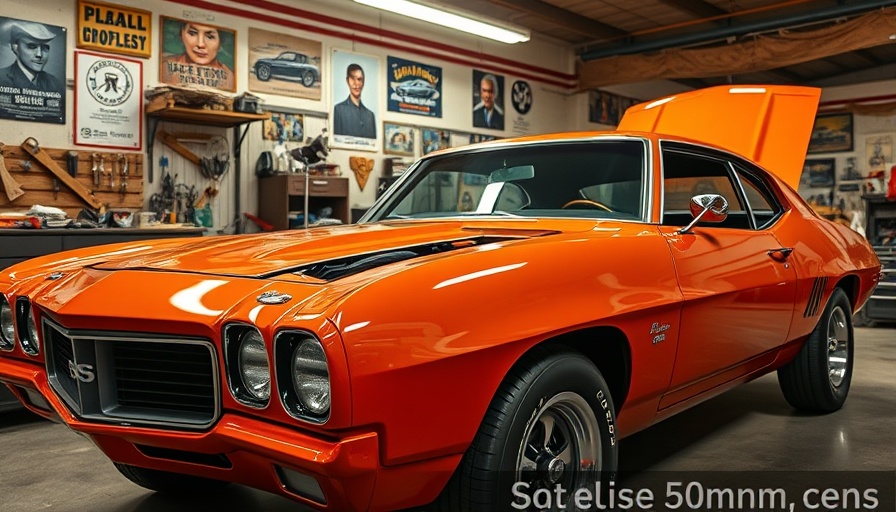
Understanding Salvage Car Auctions
For car enthusiasts and budget-savvy buyers, salvage car auctions offer a unique opportunity to score vehicles at reduced prices. These auctions primarily feature cars that have received salvage titles—vehicles deemed unable to be driven safely due to damage or theft. However, many of these cars can be repaired, providing a profitable endeavor for those who appreciate restoration projects. Whether you're searching for a classic vehicle, a cost-effective daily driver, or parts for your current ride, getting familiar with the auction process is crucial.
The Importance of Research Before Auction Day
Before diving into a salvage car auction, doing your homework goes a long way. Start by reviewing the list of available vehicles and comb through their inspection reports. These documents illuminate the cars' conditions—detailing any issues and the extent of the damage. This information is essential to make an informed bid. Additionally, utilize resources like Kelley Blue Book and auction price calculators. They help gauge what vehicles are worth based on their current state and forecast expenses related to potential repairs.
Budgeting: Stick to Your Financial Limits
Salvage car auctions can be exhilarating, but they also present the risk of impulse buying. Set a firm budget and stick to it. Reflect on all potential costs: repair expenses, registration fees, and transportation of the vehicle. Knowing your financial boundaries will help you avoid the pitfalls of bidding wars, where emotions can cloud judgment and lead to overspending.
Navigating the Bidding Process
The pace of action on auction day can be dizzying. Real-time bidding takes place either online or in-person, and it’s crucial to remain patient and strategic. Seasoned bidders often wait until the final moments to place their bids, creating a sense of urgency for their competitors. An effective strategy is to observe the bidding increments closely and stay alert to who else is participating. With these techniques, you can position yourself to land a deal without straying beyond your set limit.
Online vs. In-Person Auctions: Which is Best for You?
While traditional in-person auctions are still popular, the growing trend leans significantly toward online platforms like AutoBidMaster. Online auctions provide extensive inventories and the convenience of participating from home. Additionally, they allow you to review detailed vehicle listings and results from previous auctions. By examining these results, you gain essential insight into market trends and the potential worth of your desired vehicles.
Additional Tips for Successful Bidding
Prepare for your auction experience by familiarizing yourself with the terms of sale. Some vehicles may be sold "as-is," while others could come with necessary documentation for a rebuilt title. Understanding these terms can significantly impact your post-auction plans for the vehicle.
Moreover, consider factors like shipping costs and how long you’ll need to hold onto a vehicle before repairs are complete. These logistical elements can stretch your budget if not planned out ahead.
Taking the Leap: Should You Participate?
Ultimately, participating in salvage car auctions can be rewarding for those willing to invest time in research and preparation. With the right strategies, diligent observation, and a grasp of the auction dynamics, buyers can tap into a vast pool of opportunities while uncovering affordable vehicles.
Conclusion: Embrace the Auction Adventure
For many car enthusiasts, salvage car auctions represent the thrill of the hunt combined with the promise of a rewarding project. Whether you’re restoring classic cars or looking for a reliable model, approaching these auctions with the right knowledge equips you for success. So gear up, inspect the cars, and prepare to engage in a bidding battle—you might just come away with your next treasured vehicle.
 Add Row
Add Row  Add
Add 




 Add Row
Add Row  Add
Add 

Write A Comment